#english studyblr
Text


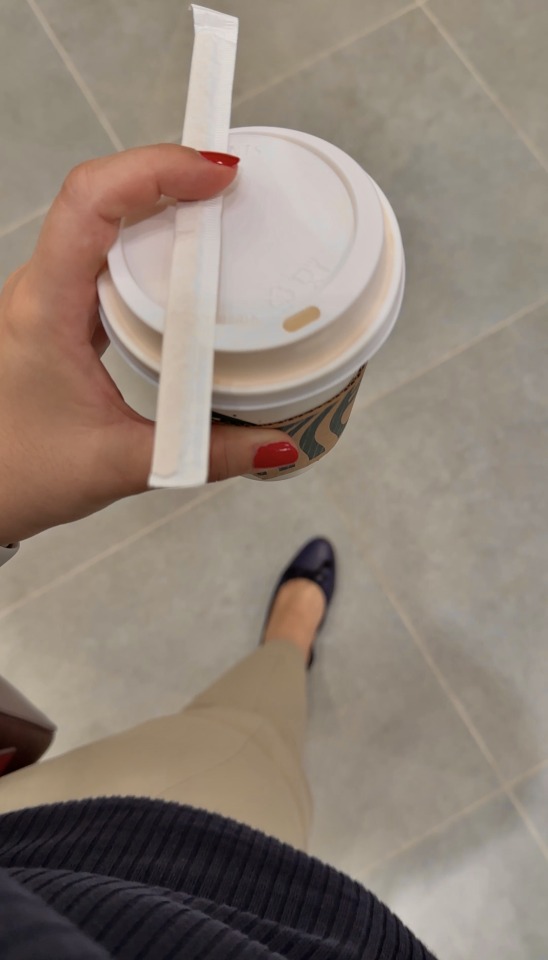

Life lately 🍂
#study aesthetic#dark academia aesthetic#english literature#studyinspo#light academia aesthetic#english major#english studyblr#studygram#dark academia
592 notes
·
View notes
Text
Resources For People Studying 'An Inspector Calls'

Videos:
Mr Bruff's Analysis Videos
An Inspector Calls in 5 Minutes
Articles:
Plot Summary
Characters
Themes
Form, Structure and Language
Dramatization
Sample Exam Question
Podcast Episodes:
Act 1
Act 1 Key Quotes
Act 2
Act 2 Key Quotes
Act 3
Act 3 Key Quotes
Structure and Chronology
Setting, Lighting and Dramatic Irony
Character Analysis: Sheila
Sheila Key Quotes
Character Analysis: The Inspector
Character Analysis: Mr Birling
Mr Birling Key Quotes
Character Analysis: Eva Smith
Character Analysis: Mrs Birling
Mrs Birling Key Quotes
Character Analysis: Gerald Croft
Gerald Key Quotes
Character Analysis: Eric
Eric Key Quotes
Mr Birling and Pride
Themes: Class
Themes: Responsibility
Themes: Gender
Attitudes To Women
Blame and Responsibility
Socialism VS Capitalism
Abuse of Power and Corruption
Social Class and Inequality
#gcse resources#gcse exams#gcse english lit#gcse english#gcse mocks#gcse studyblr#gcse#english literature#an inspector calls#english studyblr#studyblr#studyspo#studystudystudy#studyspiration#study resources#inspector goole#eva smith#sheila birling#mr birling#english#english lit
173 notes
·
View notes
Text
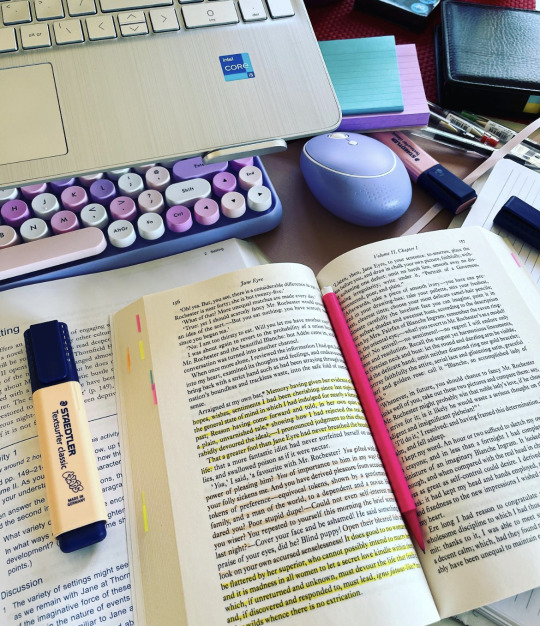


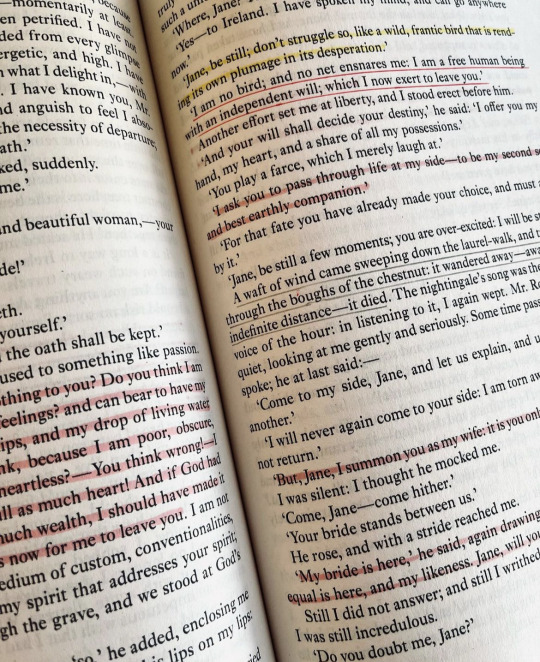
January 25th 💖
I’ve finished my close reading of Jane Eyre and somehow managed to fall more in love with this story than I already was.
Charlotte Bronte is a master of prose and language. Her writing is exquisite and I underlined so many beautiful descriptions of nature, sunsets and the moors.
I’m actually so excited to write about this book.
#books#book#bibliophile#Jane Eyre#Charlotte Bronte#english studyblr#studyblr#my studyblr#English student#student#literature student#english literature student#classics#classic literature#classic lit#pawswithprose
338 notes
·
View notes
Text

#english student#learning english#vocabulary#vocabulary list#wotd#writblr#word#writing#words#english studyblr#english#education#adjectives#adjective#natsvocabularyproject
269 notes
·
View notes
Text
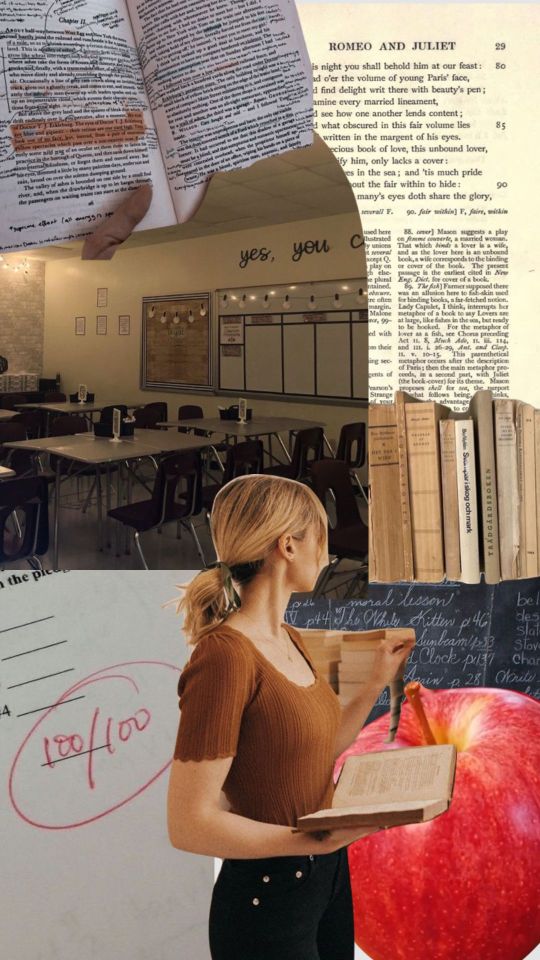
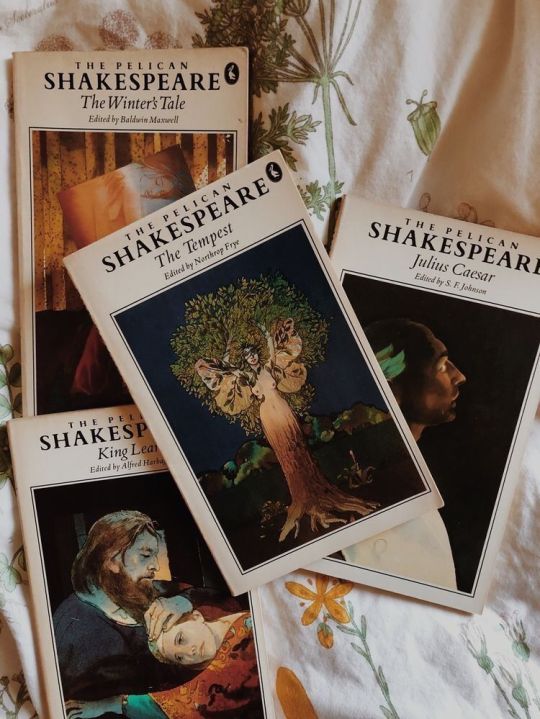
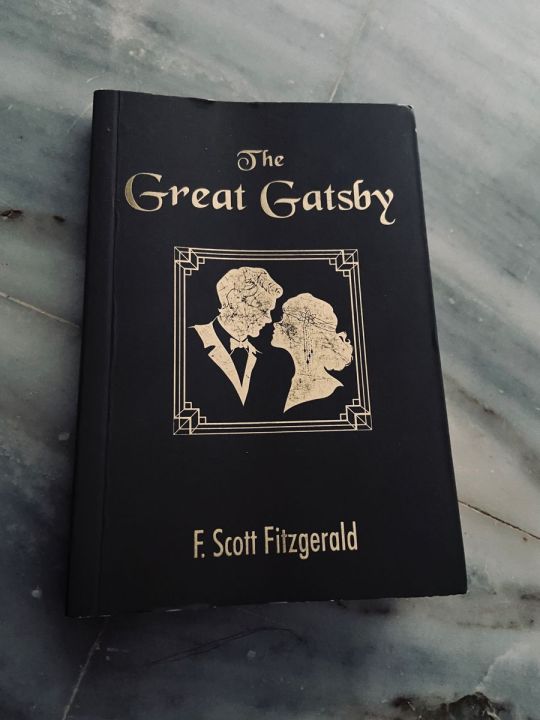

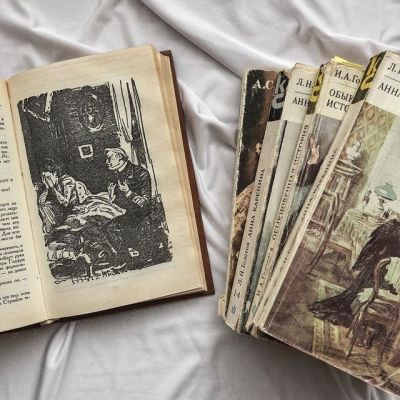
#teacher#professor#classic literature#bookish#bookworm#booklr#books and libraries#book aesthetic#books#books and coffee#books and literature#book academia#chaotic academia#english literature#english major#english studyblr#mushroomteacher
163 notes
·
View notes
Text
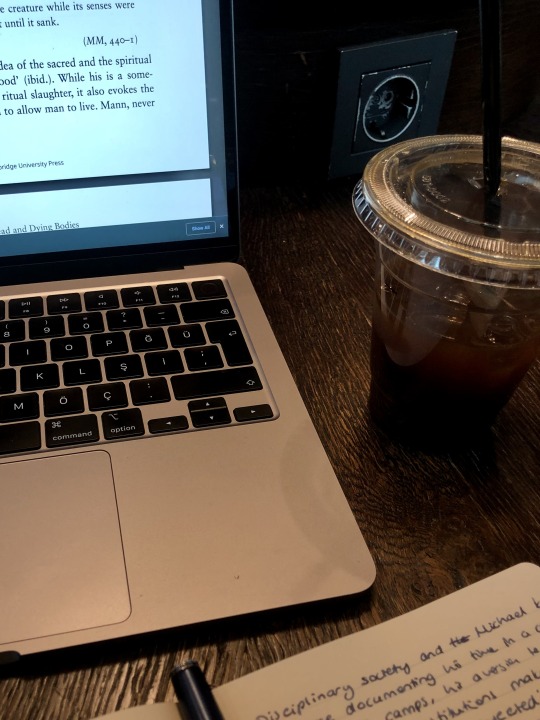
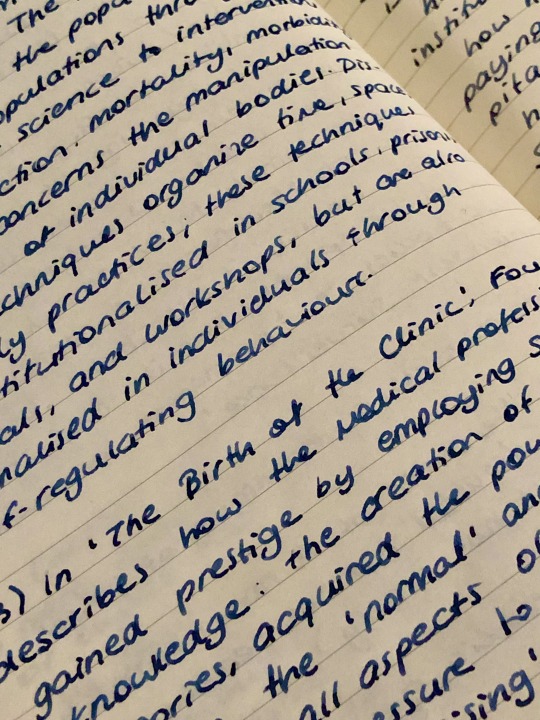
16 april 2023- prepping for a presentation on tuesday. i ordered an espresso tonic and hated it, but the café was lovely. looking forward to go back (and give up on the fancy sounding drinks)!
#dia speaks#studyinspo#studyblr#grad school#gradblr#productive day#phdblr#handwriting#study motivation#uniblr#university life#university#books#booklr#study notes#notes#english studyblr#english literature#studyspo#studying#academia
120 notes
·
View notes
Text
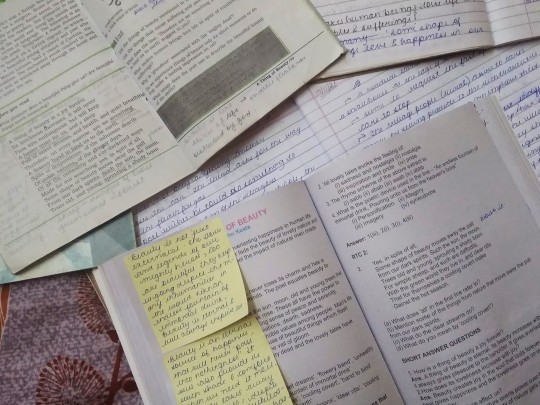
Studying English, coz ✨board exams✨
#english exam#study#studyblr#english studyblr#cbse#indian studyblr#study motivation#study hard#studyinspo#studyspiration#indian#study blog#india
129 notes
·
View notes
Text
I have an idea
I want to get fluent in Italian by July, currently I’m a weak B1, so for the next 278 days I will study Italian every single day, no excuses and I’m going to update you every day
Then I’ll tell you my results
I hope it works
This blog is honestly sometimes my only motivation to study 😭



#studying#whisper girl#blair waldorf#studybuddies#study aesthetic#studyspo#study blog#studying motivation#studybrl#this is a girlblog#language#italian language#langblog#langbr#multilingual#bilingual#french studyblr#italian studyblr#english studyblr#yale rory#study girl#studyinspo#study motivation#rory gilmore#straight a student#girlblogging#studyblr#harvard#study inspiration#girblogger
28 notes
·
View notes
Text

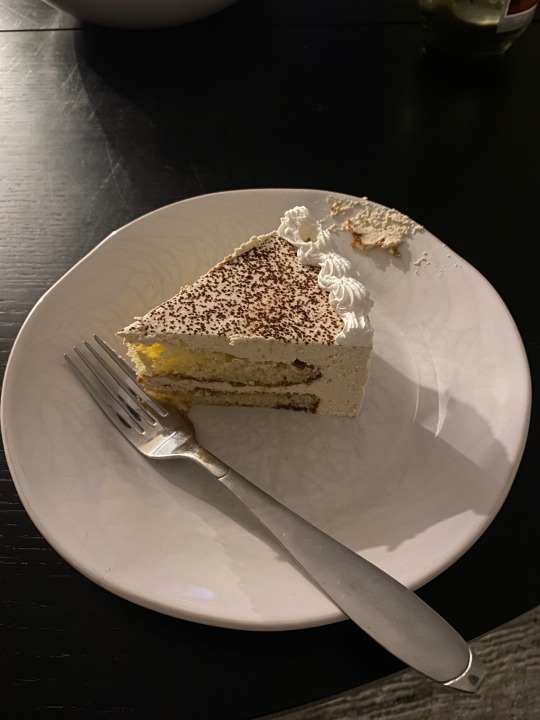
final push of the semester! cake and essay writing 🍰 🍂
21 notes
·
View notes
Text
Studyblr re-intro!

Hiya! I'm Mai (she/her) - I created my studyblr years ago to hold myself accountable for being productive and not slacking off with my studying. But I've not touched this account in years now so that's about how well that's gone.
I'm twenty one years old from the UK, and I'm in my second year of an English Literature degree. I can't lie, part of the reason I evaporated off your dashboard is because uni's been really hard. There are more tears, procrastination, breakdowns over the uncertainty of the future, hours scrolled through tiktok, stress meals eaten, and feelings of complete and utter displacement than I think people on studyblr let on. Going forward, I think I'm going to try to be more authentic (cringe sorry) and maybe that'll make me want to post more and in turn (we can only hope) be more productive.
I've also been trying to learn French since Lockdown, but am very much still a beginner (can just about order a meal), so if any langblr people wanna be friends I'm down to follow each other on Duolingo :) I say this but I've not been on Duolingo since the summer.
Quick-fire things about me!
I follow back from maiwritesstuff (boring formality but just fyi)
I love reading! Just not the stuff for my course - my favs are anything by Nabokov, Still Life by Sarah Winman, Rebecca by Daphne du Maurier, A Little Life by Hanya Yanighara, and probably a lot more than what springs to mind
One of my greatest passions in life is writing, hence why you should also follow maiwritesstuff. Not that I ever post on there either, but you can follow and then eagerly await my comeback
(I love parentheses)
I went to see Barbie 7 times in cinema and it was the greatest summer of my life
There is not a meal on earth that cannot be infinietly improved by a side of coleslaw
I'm a pisces!!
Another of my great passions in life is music! I listen to loads and loads of stuff and could ramble endlessly about most genres
I could ramble endlessly about most topics tbh
My favourite pokemon is Vaporeon
One of my New Years resolutions is to try and enjoy things without thinking too deeply about them ideologically (i am still very bad at this)
I love cooking!!! And baking!!! And one of the greatest freedoms of uni is getting to cook what I want when I want without having to battle with my younger brother for use of the kitchen. I also live RIGHT next to big tesco which is where most of my money goes :(
I'm currently procrastinating finishing an essay that's due tomorrow hahahahahaha
I'm boring and have nothing else to say :(
#studyblr#langblr#language learning#english studyblr#english student#education#studyspo#study#student#studying#not studying#study motivation#study tips
13 notes
·
View notes
Text


Shocked about how quickly can a bunch of flowers lift my mood.
#dark academia#dark academia aesthetic#english literature#studyinspo#light academia aesthetic#english major#english studyblr#studygram#study aesthetic
1K notes
·
View notes
Text
SQUALOR (noun) - the state of being extremely dirty and unpleasant, especially as a result of poverty and neglect.
Was it hard growing up in such squalor?
- Zoya Nazyalensky, talking about her childhood in Rule of Wolves, p. 353
#book#fiction#novel#rule of wolves#zoya nazyalensky#nikolai lantsov#english vocabulary#english studyblr#langblr#language learning#learning english#language#books and literature#vocabulary
7 notes
·
View notes
Text
Here are a lot of the biographical sources I’ve used in studying the second generation Romantics (mainly just Byron, Mary and Percy Shelley, and their friends). If anyone else has recommendations, etc., feel free to reply!
Note: the Internet Archive & Project Gutenberg have most of these resources for free, & many can be easily found on other websites or at libraries. I also recommend reading the literary works of these writers first and foremost, since a writer’s work often reveals the most about them!
For biographical research, primary sources are sometimes the best: the letters and journals of Mary & Percy Shelley, Claire Clairmont, John Polidori, Edward Trelawny, Leigh Hunt, Lord Byron, John Hobhouse, Jane & Edward Williams, John Keats, etc. These are always the most entertaining resources as well. It’s amazing to read what they actually wrote and see things from their perspective — it also allows you to formulate your own original opinions. But remember that people are biased and forgetful by nature, and some more than others!
Young Romantics: The Shelleys, Byron and Other Tangled Lives by Daisy Hay — this is basically a condensed biography of all the members of the Byron/Shelley Romantic squad but it does provide a lot of good info, especially on Leigh Hunt & Claire Clairmont who are less talked about. It skips over some important stuff imo but it has a wonderful thesis (that the Romantics should be studied as a whole instead of individually) and offers interesting perspectives, and neatly shows how all the figures were tied by their similar ideas/interests. Perfect as an introduction!!
Byron in Geneva: That Summer of 1816 by David Ellis — all about the gang’s summer of 1816; extremely fascinating and historical! It doesn’t go into Frankenstein because that’s covered in so many other books.
The Making of Mary Shelleys Frankenstein by Daisy Hay — a brilliant companion piece to the above! It may be helpful to have alongside this Charle’s Robinson’s The Frankenstein Notebooks (though the Frankenstein manuscripts are available to be viewed here -> http://shelleygodwinarchive.org/).
History of a Six Weeks' Tour by Mary Shelley and Percy Bysshe Shelley (1817) — travel book; series of letters/journals from their travels with Claire in 1814 and in 1816 when they were with Byron in Geneva; Byron is only referred to as their “companion” since he was extremely famous and didn’t want attention drawn to his private life. For similar reasons I believe Claire is left out a lot too; her affair with Byron was being kept quiet due to his recent separation from his wife, and many people were spreading reputation-ruining rumours that Claire and Percy also had an affair (which was probably true), etc.
Mary Shelley by Miranda Seymour — Seymour has written a lot about the Romantics and this is a pretty decent biography imo.
The Collaborative Literary Relationship of Percy Bysshe Shelley and Mary Wollstonecraft Shelley by Anna Mercer — very important and interesting, fits into Daisy Hay’s thesis above. Anna Mercer is a major figure in Romantic research/work!
Romantic Outlaws: a parallel biography of Mary Shelley and her mother Mary Wollstonecraft by Charlotte Gordon: it explores Mary Shelley alongside her mother Mary Wollstonecraft, who was also a famous writer and pioneered feminism. She and her husband influenced the philosophies of Mary and Percy Shelley and are insanely interesting in their own right.
Works by Mary Shelley’s parents: Mary Wollstonecraft’s works A Vindication of the Rights of Woman and Thoughts on the Education of Daughters; and William Godwin’s works Political Justice, Caleb Williams, and Memoirs of the Author of A Vindication of the Rights of Woman (a biography of Mary Wollstonecraft).
The Life and Letters of Mary Shelley by Mrs. Julian Marshall, two volumes via Project Gutenberg— a treasure trove of letters with writing by Marshall that is never boring imo. I think Mary’s letters and journals after Percy’s death are some of the most haunting I’ve ever read.
Byron: A Portrait by Leslie A Marchand — he’s one of the top Byron scholars and it’s probably one of the most thorough biographies. Marchand also edited the monstrous multi-volume series of Byron’s Letters and Journals, one of the definitive resources in Romanticism, often shortened by academics as “BLJ.” It’s the foundation of Byronic Studies/“Byronalia”. Byron was a prolific and beloved writer and his letters are some of the most studied, and more has been written about him than any other romantic figure by far, so I’ll try not to make this post too Byron-centric, but it is a struggle!
The Journals of Claire Clairmont by Marion Kingston Stocking — one of the best sources for Claire letters, which are sometimes hard to come by. Stocking is wonderfully sympathetic to Claire who is often neglected by historians. Claire was Mary Shelley’s step-sister and lived with Mary & Percy, and she had an affair with Byron which produced one child. Unfortunately, Claire’s diaries from 1814-1818 (when she was living with Mary & Percy + had an affair with Byron) were all destroyed. It is thought they were not destroyed by her but some other relative. This is likely because many people believe that Claire/Percy had an affair, and as blunt as she was, she would have surely written down tons of other reputation-ruining information. But her later journals and letters reveal invaluable insight into her companions lives. She was one of their main muses because she was extremely firey, funny, and fascinating.
The Clairmont Correspondence: Letters of Claire Clairmont, Charles Clairmont, and Fanny Imlay Godwin, 1808-1879. By Professor Marion Kingston Stocking. - on Claire and her siblings. Claire was Mary Shelley’s step-sister so she had her own relatives too.
Shelley, the Pursuit by Richard Holmes — considered the best biography of Percy Shelley. Extremely comprehensive. Holmes also wrote about Coleridge, and several autobiographies on what it’s like to be a Romantic biographer — very interesting!
James Bieri's biography of Percy Bysshe Shelley (two separate volumes; one edition has both volumes together) — this is the other best biography of Percy Shelley and I refer to it along with the Holmes one.
Shelley at Oxford by Thomas Jefferson Hogg — Shelley’s dorm roommate writing about their time at college. Some of his accounts are exagerrated but many are believable — he was Shelley’s best friend (aside from Peacock). Also, The Life of Percy Bysshe Shelley by Thomas Jefferson Hogg (two volumes) — same person as above. This work was boycotted by the family because it portrayed Percy as having flaws (lol) but it may not be totally accurate in other regards.
Thomas Medwin’s Journal of the Conversations of Lord Byron and The Life of Percy Bysshe Shelley. Medwin was Shelley’s cousin. His Byron book was publicly boycotted by basically everyone who knew Byron. Even Byron’s exes and servants were writing scathing reviews of it! This was partly for factual errors. However, Medwin does capture some of Byron’s personality, though the more controversial and tacky sides, which is the primary reason it was boycotted. His biography of Shelley was disliked for similar reasons. Mary wrote to Mrs. Hunt of Medwin’s Byron biography: “Have you heard of Medwin’s book? Notes of conversations which he had with Lord Byron (when tipsy); every one is to be in it; every one will be angry. He wanted me to have a hand in it, but I declined. Years ago, when a man died, the worms ate him; now a new set of worms feed on the carcase of the scandal he leaves behind him, and grow fat upon the world’s love of tittle-tattle. I will not be numbered among them.” This shows how Mary and others viewed tell-all biographies; much the same way they are viewed today.
The Diary of Edward Williams — short diary kept by Williams who drowned with Shelley and lived with him - interesting accounts of their life before death!
The Diary of John Polidori — he was Byron’s doctor and also a writer. He wrote The Vampyre, the first ever vampire novel, which was based on the story Augustus Darvell, an unfinished vampire story Byron began as part of the 1816 Geneva story competition in which Mary wrote Frankenstein. Whew. Any way, Byron’s publisher John Murray wanted to pay Polidori to keep a record of his & Byron’s travels… which he failed to follow through with, but some of his entries remain. However, most of his diaries/journals were burned by his sister for being “indecent” (likely LGBT+) & he took his own life at age 25.
The Lord Byron / John Polidori relationship and the foundation of the early nineteenth-century literary vampire by Matthew Beresford — this is actually someone’s doctoral thesis and can be found here: https://uhra.herts.ac.uk/bitstream/handle/2299/22626/13090610%20BERESFORD%20Matthew%20Final%20Version%20of%20PhD%20Submission.pdf?isAllowed=y&sequence=1&fbclid=IwAR3uN505R2nuvS1mTlUY3MEn5YRUYJn7hgmKXy9FGO0wooh6xwpXfqJTfME
Poor Polidori : a critical biography of the author of The vampyre by David Macdonald — sometimes harsh, bu the writing is truly entertaining and the intro alone is so so so insightful! “The study of a marginal figure like Polidori - indeed, of many marginal figures like Polidori - is necessary if literary studies are to be rescued from the ahistorical canonization in which they have been entrenched since before the days of the New Criticism. Even apart from the unquestionable need for a larger context against which to understand canonical authors, it may be that marginal ones provide clearer examples of certain kinds of intertextual phenomena.” Yes! He gets it.
John Keats: The Making of a Poet by Aileen Ward — one of the best biographies on Keats
Letters of Fanny Brawne to Fanny Keats and Letters of John Keats to Fanny Brawne. Fanny was John’s fiancé & muse.
Lord Byron's Jackal: A Life of Edward John Trelawny by David Crane and the Letters of Edward Trelawny — Trelawny was a brief part of the squad. He’s buried next to Shelley although he only knew him for 6 months. He was a writer, sailor, adventurer, and went into the Greek War with Byron. He kept in touch with Mary and Claire until the end of their lives. He proposed to Claire multiple times and they possibly had an affair.
Recollections of the Last Days of Shelley and Byron by Edward Trelawny — He wrote this decades after he knew them and the details in some of his stories tended to vary. In later years he became biased against some people so it can be taken with a grain of salt. But it’s very interesting and some of it must be true. Gives details of Shelley’s funeral.
Life of Byron by Thomas Moore — very well researched and Mary Shelley contributed a lot to it including accounts of the 1816 Diodati trip. Moore was a famous writer as well and he knew them all. He was one of Byron’s best friends. Biased, of course!
Lord Byron and Some of His Contemporaries: With Recollections of the Author's Life, and of His Visit to Italy by Leigh Hunt — Extremely entertaining if not unbiased. Hunt was a key part of the movement and knew everyone well, including Keats, and especially Shelley. Like all biographies written by people who were involved, it is very biased — especially since Hunt and Byron had a big falling out, which Hunt blames Byron for (which isn’t entirely fair; for example, Byron gave Hunt money which Hunt was ungrateful for, & Byron gave Hunt money to give to Mary when she was living with Hunt because Byron knew she wouldn’t accept it from him out of shyness, but Hunt kept the check for himself source: Young Romantics by Daisy Hay). Many people dislike Hunt because of this book and several things he did, but it is still interesting!
Shelley and His Circle; Carl H. Pforzheimer Collection: a collection of manuscripts with notes and expalanations - best for research!
The Shelley-Byron Conversation by William D. Brewer: explores their influences on each other and literary connections. Several books have been written just on Shelley and Byron. Another one I like is Shelley and Byron: The Snake and Eagle Wreathed in Flight by Charles E. Robinson which examines how for example Shelley plagiarized some of Byron’s work (this isn’t an attack, it’s true, and he did it out of appreciation!)
His Very Self and Voice: Collected Conversations of Lord Byron edited by Ernest J Lovell — basically a compilation of people sharing their memories of Byron and the others— some are biased but some seem super accurate, and you can tell by the details that overlap in everyone’s stories lol!
Lady Blessington's Conversations of Lord Byron edited by Ernest J Lovell — same as above. Taken from diaries she kept.
Byron’s Ravenna Journal — short diary he kept while living in Ravenna, Italy.
Byron’s Correspondence as edited and collected by top scholar Peter Cochran: much of it is available on his website here with notes —> https://petercochran.wordpress.com/byron-2/byron/
The Last Man by Mary Shelley — a fictional book, but the characters are all portraits of people Mary knew so it’s very biographically interesting. She wrote it when she was feeling l lonely after Byron and Shelley died, Claire moved far away, and the whole group was disbanded. It takes place in an apocalyptic/dystopian future. Lord Raymond is Lord Byron, Adrian is Percy, Perdita is Claire — the characters form a group she calls the “Elect.” She wrote in her journal: “The last man! Yes I may well describe that solitary being's feelings, feeling myself as the last relic of a beloved race, my companions extinct before me."
My Recollections of Lord Byron by contessa di Teresa Guiccioli — this is a book by Teresa, Byron’s gf in Italy who he lived with for years; his longest partner. She was madly in love with him and worships him to an insane extent so most of it can be taken with skepticism since it is biased, but it is entertaining.
The Last Attachment by Iris Origo: this is about Byron’s relationship with Teresa. It can be paired with the above. It is one of the only books written about Teresa and is very well researched.
The Secret: The Strange Marriage of Annabella Milbanke and Lord Byron by Ashley Hay and In Byron's Wake: The Turbulent Lives of Lord Byron's Wife and Daughter: Annabella Milbanke and Ada Lovelace by Miranda Seymour — Byron’s daughter Ada is also fascinating. She was a wild rebel like Byron, but she’s considered the mother of computer science, the inventor of coding, and was the first computer programmer ever; her and her mother were both mathematicians. Lord and Lady Byron had a horrible marriage; he was an absent father, and Annabella was a bad mother.
Journals/resources: Other important journals/resources for articles + scholarly study: 1) the Newstead Abbey Byron Society (Newstead Abbey was his ancestral home; now a museum). 2) The Byron Society, which runs The Byron Journal, which is a major resource—there are many offshoots of the Byron Society for different countries (ie Byron Society of America), that make up the overall International Society, and they have fascinating conferences and whatnot for Byron scholars to share research. 3) The Shelley Conference— they have a series of recorded interviews with scholars for the #Shelley200 anniversary celebration (found here: https://theshelleyconference.com/shelley200/). 4) the Keats-Shelley Journal— an amazing resource for all things related to them, their work, and their circles. They post a lot of work about Mary/Byron/Claire/Hunt/etc. and a lot of their past publications can be found online for free! It’s probably my favorite journal tbh.
Notes: I’ve read lots of other books and academic articles, especially if I’m searching for something on a particularly niche topic. The good thing about the Romantics is that they’re all so well-researched and so widely written about, so practically any question has already been asked before—there have been whole essays written about these writers diets, wardrobes, sexualities, health statuses, bills and bank statements, philosophies, sleep schedules, etc.! However, I’ve found a lot of newer biographical books about these writers simply rehash what others have written, and are poorly researched or not researched at all, and a lot of them are published only because it’s an easy topic to profit off of due to how interesting these people were. I ran into this problem a lot when trying to learn more about Lady Caroline Lamb, Byron’s half-sister Augusta Leigh, and his wife Anne Milbanke. There aren’t that many good books written about them because they’re considered secondary figures in the Romantic canon, and most of the books on them read like copies of each other—so individual essays online written by rogue academics are really your best bet for info instead of the books, or to otherwise supplement what the books lack!
Closing notes: I would never tell anyone not to read something, but beware that a lot of authors have written tantalizing, dramatized portraits of these writers to cash in on their scandals without actually fact checking anything. Many people in the circle had disagreements and falling outs, some understandable and some petty. It’s important to remember that everyone is explictly and implicitly biased. Byron started a feud with Keats, Claire and Mary had multiple falling outs, Hobhouse hated Percy, almost everyone hated Hobhouse, etc… so it’s good to keep a relatively open mind and to remember that these are all complex people and we shouldn’t stereotype them; they were human, and they had strengths as well as flaws. They all despised critics, and they would probably be annoyed if they knew how many biographies they all had, so the least we can do today is to appreciate their work as writers and muses, and to be respectful of their individual opinions and experiences.
#aesthetic#academia#chaotic academia#the romantics#lord byron#percy shelley#mary shelley#leigh hunt#geneva squad#english literature#literature#english studyblr#lgbt#queer studies#gothic literature#research#history#studyblr#study tips#research tips#romantic era#john keats#poetry#writing#reading#books#essays#claire clairmont#edward trelawny
112 notes
·
View notes
Text
How to Write a Poetry Essay
So I’ve seen a ton of “how to write english essay” type posts, but none specifically for poetry and given that the deadline for my own poetry essay is in like two days, I decided to procrastinate productively by writing this ¯\_(ツ)_/¯
1) Select a Poem. I know this is pretty obvious, but remember that you’re going to be studying the stuffing out of this one+ specific poem, so make sure you choose it wisely! Select a poem that you love or that you’re interested in or find it fascinating - that way, the following steps won’t be so tough (or mind numbingly boring)
2) Analyse the Heck out of it Part 1. Read it and re-read it and re-read it again, and then take a pencil (and a highlighter if you want to be ~extra~) and start underlining/circling/making notes on each line, marking anything that stands out to you. Look at the word choice that the poet made (everything has a reason!) as well as the structure, form, imagery, tone, and sounds. Also consider the historical, cultural, and social context of the poem, cause chances are, this had a HUGE affect on the poet as to why and/or how they wrote it!
3) Analyse the Heck out of it Part 2. Then do yourself a favour and look up “[Poem Title] by [Poet] analysis” on google dot com, open up the first five links, and read what other people have to say - you’ll be surprised at how many ways you can interpret the same piece of text, and you’ll be SUPER surprised by how much you missed (don’t worry, we all miss practically everything). You might find an interpretation that you prefer or maybe you’ll disagree with everything you read - the point is, you don’t want to miss a Very Obvious TM symbol in the poem and have your professor shake their head in disgust at your essay
4) Thesis Statement Time. Yes, that’s right, it’s our favourite part of essays! (*cough* not *cough*). I like to find one or more research questions first, and then reword them to soung more thesis-y. Ask yourself what the poem is about, what is the poet trying to say, and how did you interpret that meaning - then pull the ole’ switcharoo to get your thesis statement. For example, "The Raven" by Edgar Allan Poe:
This poem tells the story of a distraught protagonist who is visited by a talking raven on a midnight in December.
Poe wrote the poem to portray the human psyche in turmoil and to explore the fragility of the human mind as well as the limitations of language.
I interpret that as grief is all-encompassing and inescapable and it’s impossible to put into words.
Research Question: How does "The Raven" reflect the themes of death, grief, and loss and how does it address the issues of language, communication, and perception?
Thesis Statement: Edgar Allan Poe's poem "The Raven" masterfully reflects the themes of death, grief, and loss through its portrayal of a protagonist's unrelenting despair over the death of his beloved. Additionally, the poem addresses the issues of language, communication, and perception by exploring the limitations of language in conveying the depths of human emotions, the breakdown of communication between the protagonist and the raven, and the distorted perception of reality in the protagonist's descent into madness, collectively illustrating the profound and haunting impact of grief on the human psyche.
5) Plan your Essay. Now that THAT’S out of the way, it’s time to get planning - and yes, for the love of all that is poetry, Plan. Your. Essay. It makes everything so much easier when it comes to writing, and let me tell you, as someone who has corrected dozens of essays in the past, it is SO incredibly obvious who has planned their essay and who hasn’t. Once you have your thesis statement, break it down into multiple parts - at least three, but preferably no more than five. Outline the main points you want to address and organize them in a way that makes sense and gives you a seemless flow from one paragraph/argument to the next. Gather the evidence you will need, i.e. quotations from the poem, citations from other critics, references to the social/historical setting of the poem, etc. Then combine them all together so that each paragraph focuses on one specific aspect of the poem with support from your sources. For example:
Introduction: “The Raven” was written by Edgar Allan Poe in 1845. Give background info about the poem and the poet. Then write your thesis statement, as given above
Paragraph 1: Explore how the poem reflects on the themes of death, grief, and loss through the portrayal of the protagonist's despair over his lost love
Paragraoh 2: Discuss how the raven’s presence and the repetition of the word "Nevermore" serve as constant reminders of the protagonist's inability to move on from his loss and the inescapability of grief
Paragraph 3: Examine how the poem addresses the issues of language, communication, and perception, e.g. analyze the limitations of language in conveying the depths of human emotions, as exemplified by the protagonist's futile attempts to communicate with the raven and seek answers
Paragraph 4: Explore how the protagonist's perception of reality becomes distorted as he descends into madness, with the raven and other elements in the poem blurring the lines between reality and his internal turmoil
Paragraph 5: Discuss how "The Raven" portrays the profound and haunting impact of grief on the human psyche and examine how the protagonist's emotional state is depicted through the poem's vivid imagery, symbolism, and tone. As well as that, discuss the emotions that are caused in the reader - the sense of foreboding and unease
Conclusion: Finally, summarize the main points discussed in your essay and reiterate the thesis statement. Conclude with a reflection on the enduring relevance and impact of "The Raven" as a literary work that masterfully captures the themes of death, grief, loss, language, communication, and perception.
And bon appetit, you have successfully written a poetry essay! Congrats on surviving the struggle (especially if it really is “The Raven” that you’re writing about) and go forth to spread the wise words of the sonneteers!
43 notes
·
View notes
Text

#english student#learning english#vocabulary#vocabulary list#wotd#noun#writeblr#vocab list#vocab#english studyblr#english vocab#english#studyblr
10 notes
·
View notes
Text
You're studying English, drink some tea and sit on your favourite armchair. Please tell me that I'm not the only one who love this feeling>>>
9 notes
·
View notes